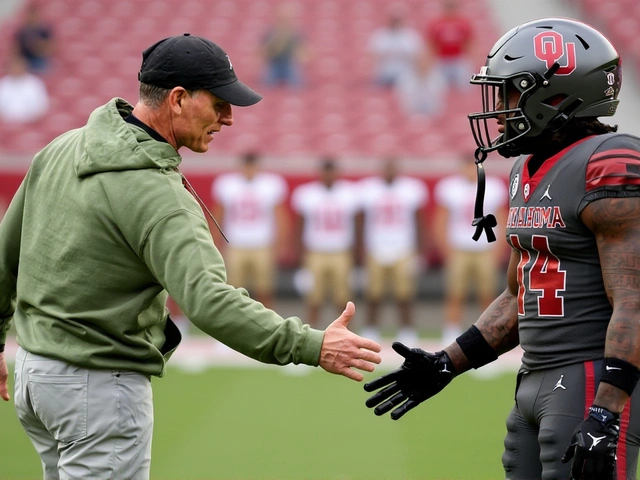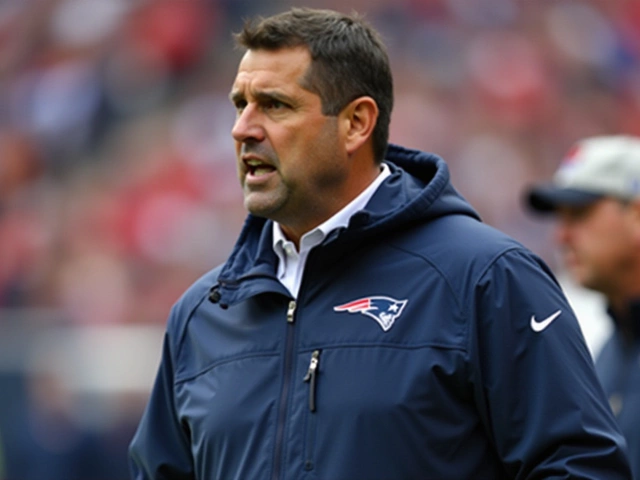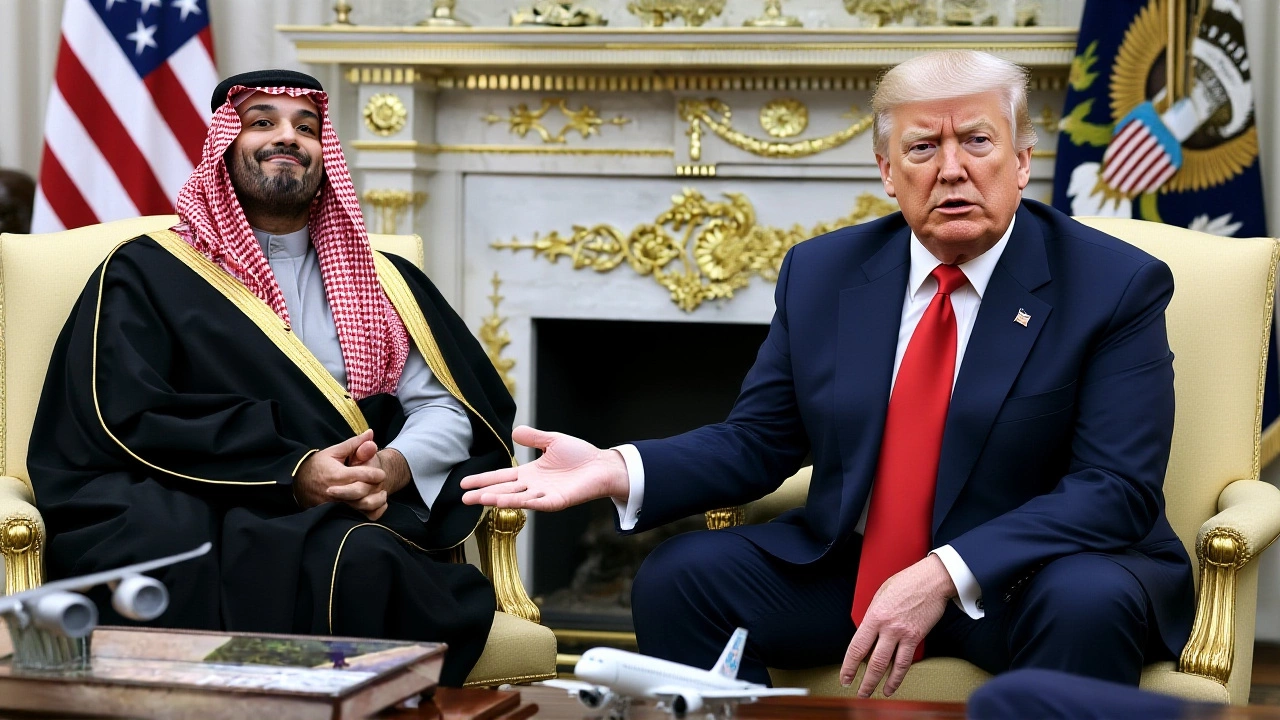
When Donald J. Trump welcomed Mohammed bin Salman to the White House on November 18, 2025, the air wasn’t just thick with protocol—it was charged with the weight of a geopolitical reset. It was the first time the Saudi crown prince had set foot in Washington since the 2018 murder of journalist Jamal Khashoggi, a crime that once shattered U.S.-Saudi trust. Now, with a $1 trillion investment pledge hanging in the balance and fighter jets, nuclear tech, and AI systems on the table, the message was clear: economics and security now outweigh past grievances. The meeting, which began with a formal arrival ceremony at 1600 GMT and culminated in a closed-door lunch at 1715 GMT, wasn’t just diplomacy. It was a deal-making marathon disguised as statecraft.
A Historic Reckoning, Not a Reconciliation
The shadow of Khashoggi loomed, but it didn’t dominate. Trump, who had previously pledged to declassify documents related to the killing, now declared, “There is nothing to hide,” just days before the visit. That statement, posted on his social media, was less an admission of transparency and more a signal that the U.S. was ready to move on. For Mohammed bin Salman, the visit was a high-stakes redemption tour. His presence in the Oval Office—seated across from the president who once called him “a good guy”—was a diplomatic win. But it came at a cost: the U.S. appeared to soften its stance on human rights accountability, even as Sky Roberts, brother of Virginia Ju (a figure linked to Khashoggi’s circle), gave an emotional speech outside the State Department, urging officials not to forget the journalist’s family.The $1 Trillion Gamble
The headline wasn’t the F-35s. It wasn’t the nuclear cooperation protocols. It was the number: $1 trillion. That’s what Mohammed bin Salman committed to investing in the U.S. after Trump asked him, during lunch, if he could “try and get that up to a trillion.” The original $600 billion pledge, made during Trump’s May 2025 trip to Riyadh, was already unprecedented. Now, it’s doubled in ambition. The money isn’t just sitting in Treasury bonds. It’s earmarked for U.S. infrastructure, AI startups, clean energy projects, and defense manufacturing. Trump claimed it would “create jobs and resources for American companies”—a line that resonated with Midwestern voters still reeling from factory closures. Analysts say the investment could rival China’s Belt and Road in scale, but with one key difference: it’s backed by Saudi oil wealth and American military muscle.Defense Deals and Dual-Use Tech
Behind closed doors, the U.S. and Saudi Arabia discussed a defense pact that could include the sale of F-35 stealth fighters—a long-sought prize for Riyadh that Washington has withheld since 2018 over concerns about regional escalation and human rights. The deal, if finalized, would mark the first time Saudi Arabia receives fifth-generation fighter jets from the U.S. But it’s not just weapons. The two nations also agreed to explore joint development of AI systems for logistics and surveillance, with potential dual-use applications that could blur the line between civilian innovation and military control. Nuclear energy cooperation, framed as “peaceful use,” is another pillar. The Saudis want U.S.-built reactors to power desalination plants and future cities like NEOM. But experts warn: without strict safeguards, this could open a backdoor to nuclear weapons capability.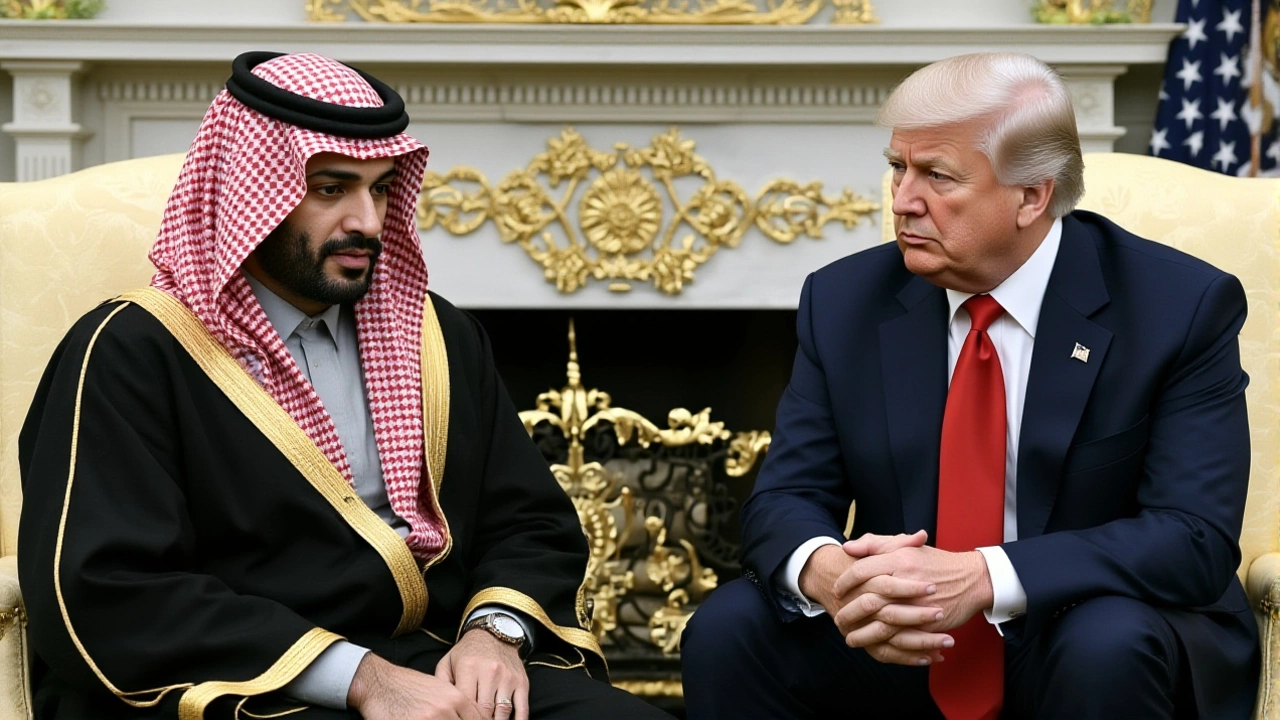
The Abraham Accords Expansion
Then there’s the quiet ambition: bringing Saudi Arabia into the Abraham Accords. Originally signed by Israel, the UAE, Bahrain, and Sudan, the framework was designed to normalize relations between Arab states and Israel. Now, the U.S. is pushing Riyadh to follow suit. For Mohammed bin Salman, this is a strategic masterstroke—it signals to the world that Saudi Arabia is no longer isolated as a regional pariah, but a central player in a new Middle East order. For Israel, it’s a quiet victory: the kingdom’s recognition, even if indirect, chips away at decades of Arab consensus against normalization. But the move is risky. Public opinion in Saudi Arabia remains deeply skeptical of Israel. And the Gaza ceasefire, still fragile, could unravel if the Saudis appear to be aligning too closely with Washington’s regional agenda.What Happens Next?
Implementation begins in early 2026, though no binding timelines were announced. The State Department is expected to draft a formal investment memorandum of understanding by January, while the Pentagon is already conducting internal reviews on F-35 export eligibility. Meanwhile, Congress is bracing for a fight. Lawmakers like Senator Chris Murphy and Representative Ilhan Omar have signaled they’ll demand hearings on human rights conditions tied to the defense deal. But with Trump back in the White House and GOP control of both chambers, opposition may be muted. The real test comes in 2027—when the first F-35s are scheduled for delivery and the first Saudi-funded tech hub breaks ground in Texas.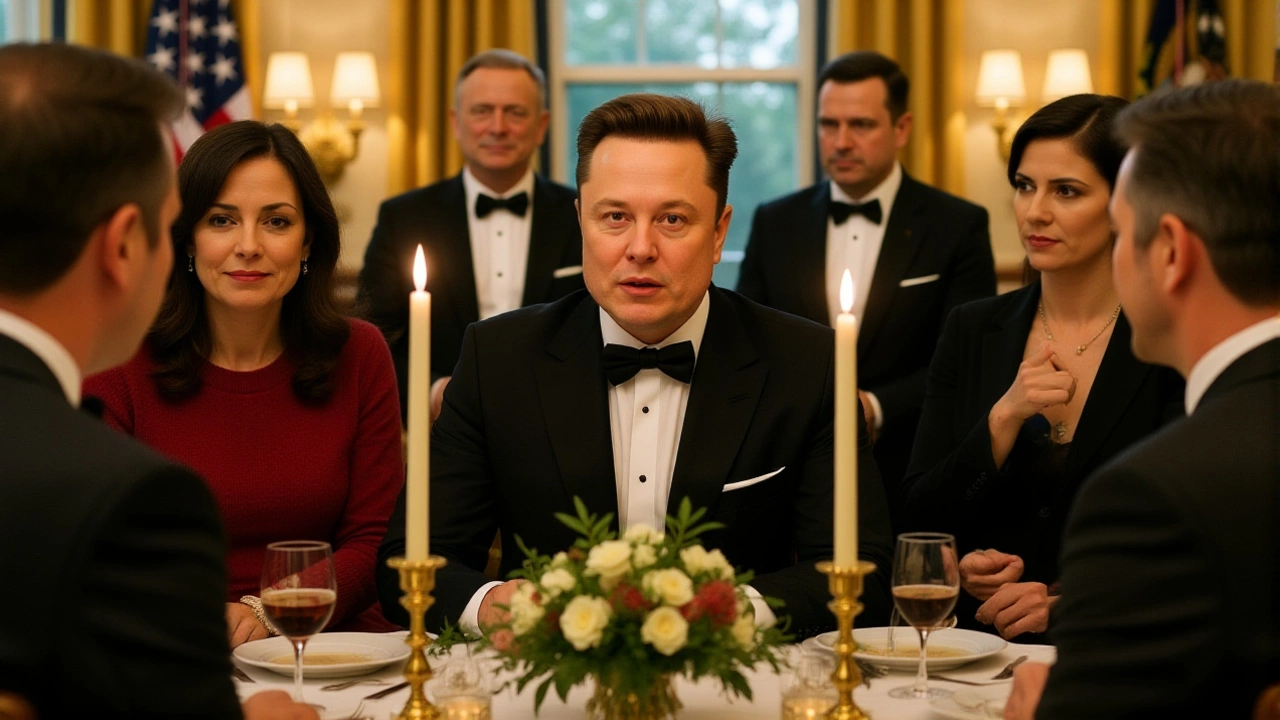
Why This Matters Beyond the Headlines
This isn’t just about oil and jets. It’s about the future of U.S. foreign policy. For over a decade, Washington preached a doctrine of values-based diplomacy. Now, it’s embracing transactional realism. The message to allies and adversaries alike? If you’re willing to invest, innovate, and align strategically, the U.S. will overlook the past. That’s a profound shift. It’s also a dangerous one. Countries with poor human rights records now have a clearer path to American partnership. And the world is watching. Will this model strengthen global stability—or embolden autocrats?Frequently Asked Questions
Why is the $1 trillion investment deal so significant?
The $1 trillion pledge dwarfs most U.S. infrastructure bills and exceeds the total foreign direct investment from any single country in U.S. history. It’s not just capital—it’s long-term economic entanglement. Saudi funds will flow into American tech firms, renewable energy grids, and defense contractors, creating jobs across 30+ states. For context, the entire 2024 U.S. federal infrastructure law allocated $1.2 trillion over ten years. This deal, if fully delivered, would inject roughly $200 billion annually into the U.S. economy.
Why did Trump change his stance on the Khashoggi case?
Trump’s shift reflects a broader pivot from moral posturing to strategic pragmatism. While he once called Khashoggi’s murder “a terrible thing,” he now frames it as a closed chapter. His administration argues that Saudi Arabia has reformed its judiciary and reduced executions. But critics point to ongoing repression of dissidents and the lack of accountability for Khashoggi’s killers. The real driver? Oil security, defense contracts, and the $1 trillion investment. Trump has never prioritized human rights over economic or geopolitical gain.
What are the risks of selling F-35s to Saudi Arabia?
The F-35 is the most advanced fighter jet in the world, with stealth tech and data-link systems that could be compromised if not properly secured. Past leaks show Saudi Arabia has struggled with cybersecurity and internal oversight. Experts fear the jets could be used to escalate conflicts in Yemen or against Iran, destabilizing the region. Worse, if Saudi Arabia gains access to the jet’s software, it could reverse-engineer components—potentially aiding rivals like Russia or China. The U.S. insists on strict “end-use monitoring,” but enforcement has historically been weak.
How does this affect U.S.-Israel relations?
Israel sees Saudi entry into the Abraham Accords as a major strategic win, potentially isolating Iran and reducing regional hostility. But it’s also a gamble. If Saudi Arabia joins without normalizing ties with the Palestinians, it could trigger backlash across the Arab world. Israel’s leadership is privately urging Washington to link Saudi participation to progress on Palestinian statehood—but the U.S. has so far refused. For now, the relationship is transactional: Israel gets a powerful ally; the U.S. gets a more stable Middle East; Saudi Arabia gets legitimacy.
Could this deal face legal challenges in Congress?
Yes. While the president has broad authority over foreign investment and defense sales, Congress must approve major arms transfers under the Arms Export Control Act. Senators could hold up F-35 sales by refusing to lift the 2019 congressional block on such exports. Additionally, lawmakers may demand a new human rights certification before releasing funds tied to the $1 trillion investment. With Democrats controlling the Senate in 2026, expect heated debates—and possible amendments that delay implementation until 2027.
What role did Jared Kushner play in this deal?
Though no longer in government, Kushner remains a key backchannel between Trump and Saudi leadership. He helped broker the original 2020 Abraham Accords and reportedly advised Trump on how to frame the Khashoggi issue during the November talks. Sources say he privately assured Saudi officials that Trump would not revisit accountability, and that the U.S. would prioritize economic and security cooperation. His influence is subtle but undeniable—acting as the bridge between Trump’s transactional instincts and Saudi Arabia’s long-term ambitions.
